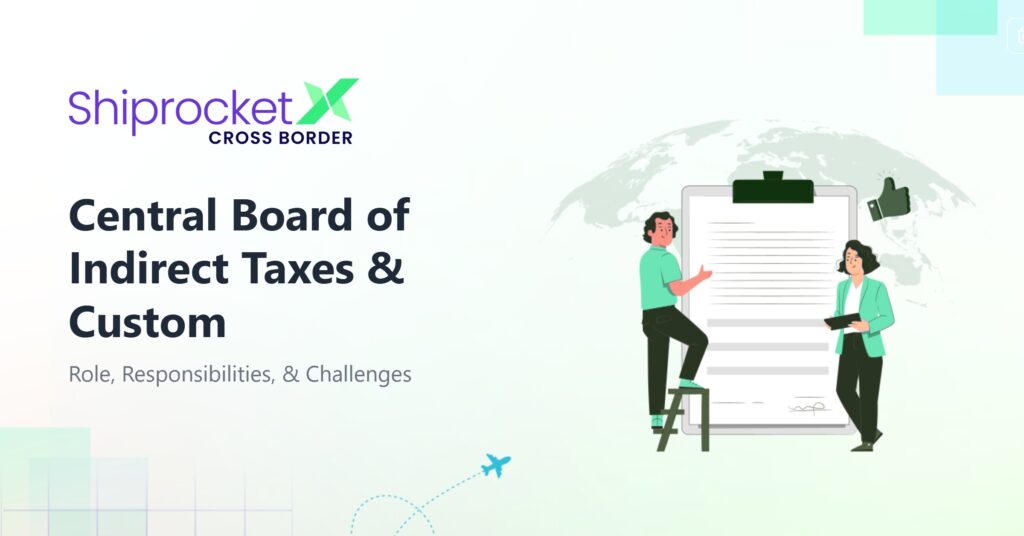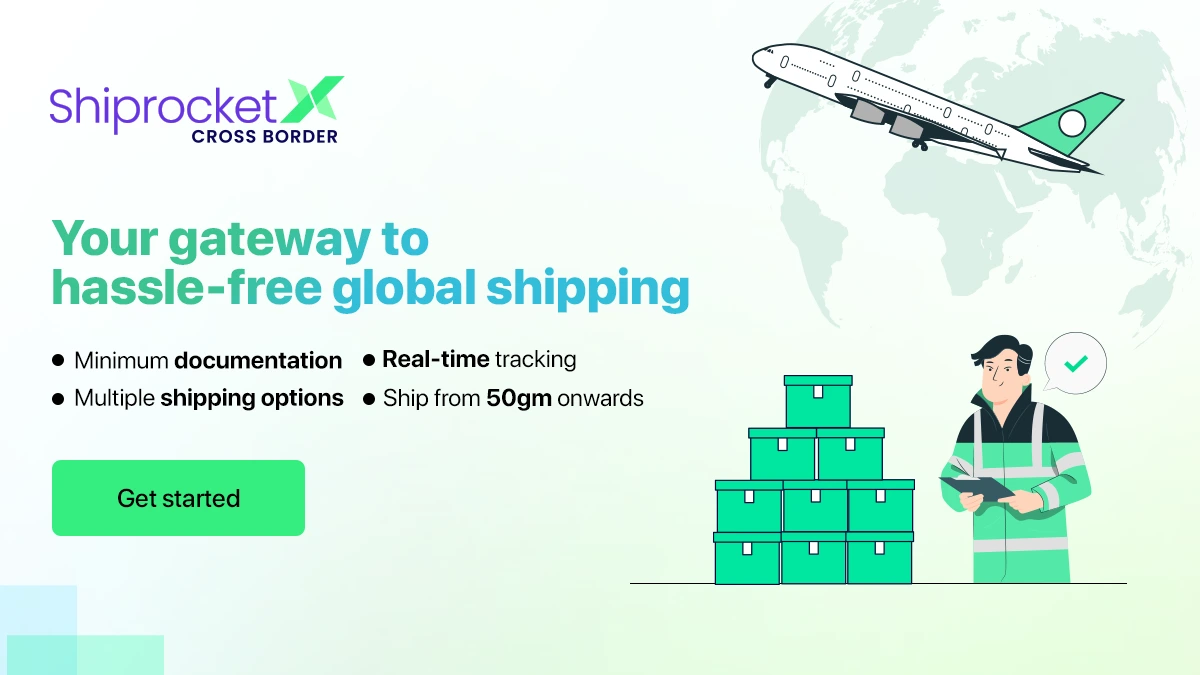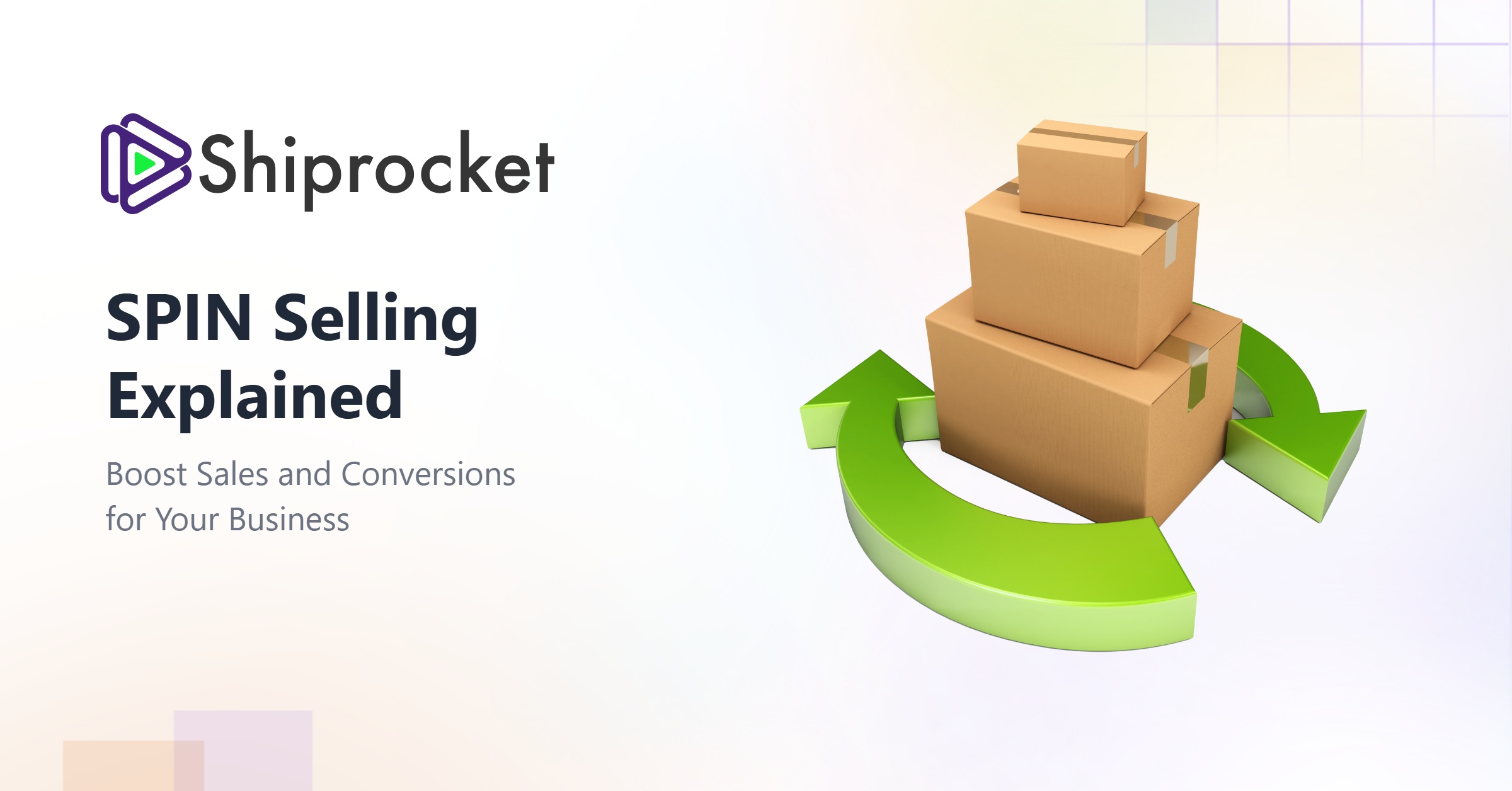CBIC: Role, Duties, Reforms & How it Shapes Indian Trade Today
- What is CBIC? – Origin, Purpose, and Structure
- What CBIC Does? – A Breakdown of Core Duties and Oversight
- What Is CBIC’s Role in Streamlining Trade and Customs Procedures?
- What Are the Recent CBIC Changes That Reshaped Trade and Tax Ecosystems?
- What Hinders CBIC? Operational, Technological, and Policy Challenges
- What Exporters and Importers Must Know about CBIC?
- What to Must-Know CBIC Portals for Traders, Brokers, and eCommerce Firms?
- How CBIC’s Growing Relevance in India’s eCommerce Fulfillment with ShiprocketX?
- Conclusion
The Central Board of Indirect Taxes and Customs (CBIC) has been established to supervise indirect taxes in India, including GST, customs duties, central excise, and narcotics. Its main responsibilities are drafting tax policies, collecting taxes, preventing fraud, and implementing trade agreements. CBIC also promotes fair trade and simplifies the export-import process through digital tools such as ICEGATE and ICES.
India’s fair trading policies have enabled numerous businesses to establish a global presence. As of June 2025, India’s total exports stand at USD 67.98 billion, and total exports have reached USD 71.50 billion. The Central Board of Indirect Taxes and Customs (CBIC) plays a crucial role in facilitating smooth export-import operations, contributing to economic growth.
Businesses planning to expand their reach in the global market must understand CBIC’s regulations, responsibilities, and impact on trade. This article covers everything you need to know about CBIC, its core duties, challenges, purpose, and more.

What is CBIC? – Origin, Purpose, and Structure
CBIC, earlier known as the Central Board of Excise and Customs (CBEC), was established in 1964 to oversee indirect taxes in India, including customs duties, GST, central excise, and narcotics.
Operating under the Department of Revenue, Ministry of Finance, CBIC is headed by a Chairperson and six members who guide policy, ensure tax collection, and oversee investigations and legal matters related to taxation.
What CBIC Does? – A Breakdown of Core Duties and Oversight
Here are some key responsibilities of CBIC:
- Drafts Policies
CBIC creates policies for customs duties, service tax, GST, central excise, and other indirect taxes to ensure effective tax collection and compliance.
- Collects Duties and Taxes
The board collects central excise on certain goods, customs duties on exports and imports and GST from all over the country.
- Simplifies International Trade
CBIC helps Indian traders with the customs processes and procedures. This reduces customs clearance time and the hassle involved in the process.
- Conducts Audits and Prevents Tax Frauds
The central body conducts regular audits that help prevent tax evasion, smuggling, and illegal trade. CBIC also seizes narcotics and counterfeit currency to maintain compliance.
- Implements International Agreements
It implements Preferential Trade Agreements, Free Trade Agreements, and other trade treaties to ensure Indian traders comply with international standards.
- Brings about Digital Transformation
CBIC also promotes digital transformation through initiatives such as ICEGATE (Indian Customs Electronic Gateway). The portal has been designed to allow online filing of shipping bills and the bill of entry. It also facilitates duty payments, refunds, drawback disbursements, and cargo clearance, significantly speeding up customs processes.
What Is CBIC’s Role in Streamlining Trade and Customs Procedures?
Here is how the central board streamlines the customs procedures:
- Enforces Fair Trade Practices
CBIC makes sure that fair trade practices are implemented to prevent fraudulent activities and promote a business-friendly environment. It ensures compliance with safety and quality standards and implements strict measures to prevent over-invoicing, under-invoicing, and smuggling.
- Simplifies Trading Process
By digitising the processes and easing the tax laws, it simplifies the trading processes for Indian exporters and importers. This helps them trade smoothly in the overseas market.
- Aids Government Funds
Businesses require a robust infrastructure, good connectivity and favourable government schemes to function efficiently. CBIC collects a large amount of indirect tax from businesses, which helps the government build an ecosystem for seamless business operations.
What Are the Recent CBIC Changes That Reshaped Trade and Tax Ecosystems?
The Central Board of Indirect Taxes and Customs has come up with the following changes in its trade and tax policies over the last decade:
- In July 2017, CBIC introduced the Goods and Services Tax (GST) and administered it nationwide.
- In 2018, the board was renamed from the Central Board of Excise and Customs (CBEC) to CBIC to reflect its expanded role.
- In 2020, it implemented the Customs Rules (also known as CAROTAR), which makes sure that the goods imported under Free Trade Agreements comply with origin regulations.
- In 2020, the board introduced the system of e-invoicing under GST. It is meant to create a standard invoice reporting to control tax fraud among businesses above a specific turnover.
- It introduced the Faceless Assessment System in 2020. This system was implemented in customs to eradicate the need for one-to-one interaction between the traders and the customs staff. This helped speed up the cargo clearance process and lower the scope of corruption.
- Between 2020-2021, the Customs (Amendment) Act and Anti-Smuggling Measures were introduced to prevent smuggling through strict penalties.
- CBIC has come up with various digital tools like ICEGATE and the Indian Customs EDI System (ICES) to streamline customs and trading processes.
What Hinders CBIC? Operational, Technological, and Policy Challenges
Here are some of the challenges faced by CBIC:
- CBIC has digitised its processes for the ease of businesses. However, this has increased its exposure to cybercrime.
- Staying updated with the latest international trade regulations and policies can be challenging, but it is essential.
- It must ensure that businesses comply with its norms. To achieve this, CBIC must educate them about its policies regularly. Any modifications must be implemented and communicated in a timely manner.
What Exporters and Importers Must Know about CBIC?
CBIC plays a key role in the functioning of export-import processes in the following manner:
- An important step in the export-import process is the clearance of goods through customs, which is managed by CBIC.
- CBIC’s portal, ICEGATE, enables traders to file the Shipping Bill and Bill of Entry online in a few simple steps.
- CBIC processes schemes such as Duty Drawback and RoDTEP to support exporters financially.
- CBIC also ensures exporters comply with international trade standards and takes strict measures to prevent malpractices.
What to Must-Know CBIC Portals for Traders, Brokers, and eCommerce Firms?
Here is a list of CBIC portals launched for exporters, importers, and brokers:
- ICEGATE: Enables online filing of import and export documents, including Bills of Entry and Shipping Bills.
- GST Portal: It helps with all the GST formalities, including registrations, payments, refunds and returns.
- e-Sanchit: Allows digital submission of documents needed for customs clearance. This includes certificates, invoices and permits.
- ensureSWIFT: Short for Single Window Interface for Facilitating Trade, it has been designed to enable smooth inter-agency approvals. It integrates CBIC systems with government departments such as FSSAI, Plant Quarantine and Drug Controller.
- Saksham Seva: This provides IT support to CBIC officers to streamline their work.
How CBIC’s Growing Relevance in India’s eCommerce Fulfillment with ShiprocketX?
CBIC plays an important role in India’s eCommerce fulfillment by drafting customs policies and export and import regulations. ShiprocketX enables businesses to comply with these regulations to ensure smooth overseas trade. Shipments are managed efficiently, meeting all requirements and reaching overseas destinations on time.
Services include selecting the correct HS code to calculate export duties and handling documentation, making the trading process hassle-free while avoiding penalties and shipping delays.
Complete shipment visibility, clear invoicing with no hidden charges, and digitised workflows further speed up the shipping process and lower the scope of error.
Conclusion
CBIC has been established to oversee indirect taxes in India. Its role involves creating, reviewing and modifying tax policies, ensuring tax collection and carrying out tax-related investigations. The central board has also simplified the customs procedures for the ease of exporters and importers.
Over the years, it has brought about several changes to improve India’s trade and tax system. This includes the introduction of GST in 2017, the e-invoicing system under GST, the Faceless Assessment System and CAROTAR, among others.
Exporters and importers in India must understand the regulations set by CBIC to ensure smooth trade. Seeking assistance from shipping aggregators such as ShiprocketX can be helpful in this direction.
The Central Board of Indirect Taxes and Customs (CBIC) is a government body under the Ministry of Finance responsible for overseeing indirect taxes in India. It manages GST, customs duties, central excise, and narcotics control, while also facilitating export-import operations.
CBIC’s key responsibilities include:
Drafting indirect tax policies (GST, customs, excise)
Collecting taxes and duties
Preventing tax evasion, smuggling, and fraud
Implementing trade agreements like FTAs and PTAs
Promoting digital trade platforms such as ICEGATE and ICES
CBIC ensures smooth cross-border trade by:
Simplifying customs clearance processes
Implementing Duty Drawback and RoDTEP schemes for exporters
Enforcing compliance with international trade standards
Digitizing export-import documentation through portals like ICEGATE and e-Sanchit
Despite digital transformation, CBIC faces challenges such as:
Rising risks of cybersecurity threats
Staying updated with global trade regulations
Educating businesses about frequent policy updates
Preventing smuggling and fraudulent trade practices







